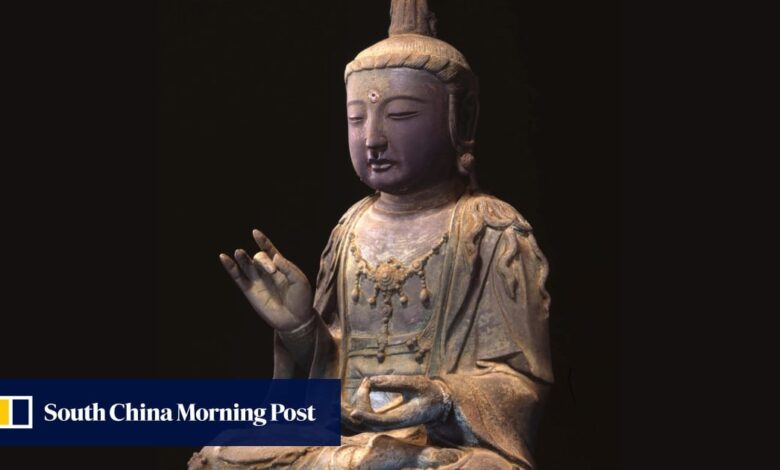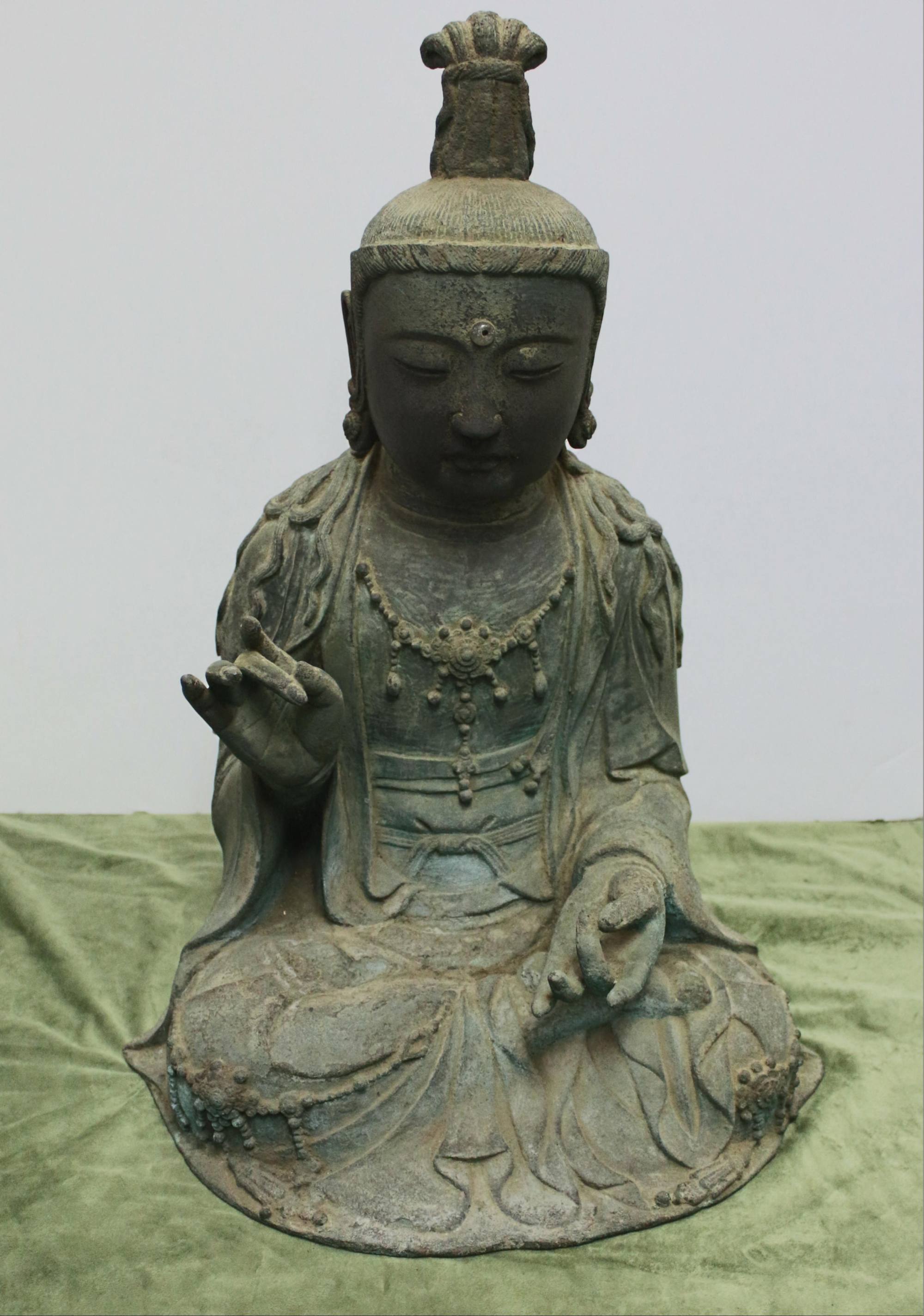South Korea’s top court rules Japanese temple is rightful owner of stolen 700-year-old Buddha statue

South Korea’s Supreme Court ruled on Thursday that a Buddha statue stolen from a Japanese temple in 2012 belongs to the temple, rejecting a South Korean temple’s claim to ownership of it.
The decision over the 14th-century statue followed a similar ruling by the Daejeon High Court in February. The statue was stolen by South Korean thieves and recovered by South Korean authorities in 2013.
The ruling effectively ends the protracted legal dispute over the roughly 50-centimetre (20-inch) statue of a sitting Buddhist Bodhisattva.
The thieves were caught trying to sell it after returning home and the statue passed into South Korean government custody, but the Buseok temple – about 100 kilometres (62 miles) south of Seoul – filed a lawsuit in 2016 asserting ownership and demanding it be returned.
The top court’s ruling comes at a time when Japan-South Korea relations have been improving after the administration of South Korean President Yoon Suk-yeol pledged to resolve a long-standing wartime labour dispute with Japan in March.
At a news conference in Tokyo, Deputy Chief Cabinet Secretary Hideki Murai said the Japanese government “will urge the South Korean government to promptly return the Buddha statue” to its owner, the Japanese temple, following the ruling.
South Korea’s Yoon under fire for trying to play down anti-Japanese moves
South Korea’s Yoon under fire for trying to play down anti-Japanese moves
In 2017, the Daejeon District Court ordered the statue stolen from Kannonji, a temple on Japan’s Tsushima Island in Nagasaki Prefecture, to be handed over to Buseok Temple in Seosan, southwest of Seoul, leading to a worsening of bilateral ties.
The South Korean temple claimed the statue was looted from it by Japanese pirates hundreds of years ago.

The top court said in the ruling that it recognises Seoju Buseok Temple, which made the statue in the 14th century, to be the same temple as the current Buseok Temple.
But the court concluded the South Korean temple has lost ownership of the Buddha statue given the number of years it has been in the possession of the Japanese temple. It also noted that Kanonji satisfies the requirements to be recognised as its owner under Japan’s Civil Code.
Setsuryu Tanaka, chief priest of Kanonji, told reporters in Tsushima the ruling was “reasonable” and that he wants the Buddha statue to be returned to the southwestern Japan island.
‘Friend or foe’? South Korea’s Yoon deploys anti-communist rhetoric to decide
‘Friend or foe’? South Korea’s Yoon deploys anti-communist rhetoric to decide
A former chief priest of the South Korean temple, Won Woo, however, condemned the ruling.
“Our Supreme Court has legalised armed and illegal looting. This is such a barbaric ruling, and we cannot accept it at all,” Won said.
Nagasaki has designated the Buddha statue as the prefecture’s cultural property.
The statue is currently being held at the National Research Institute of Cultural Heritage in the central Korean city of Daejeon, according to the Yonhap news agency.

